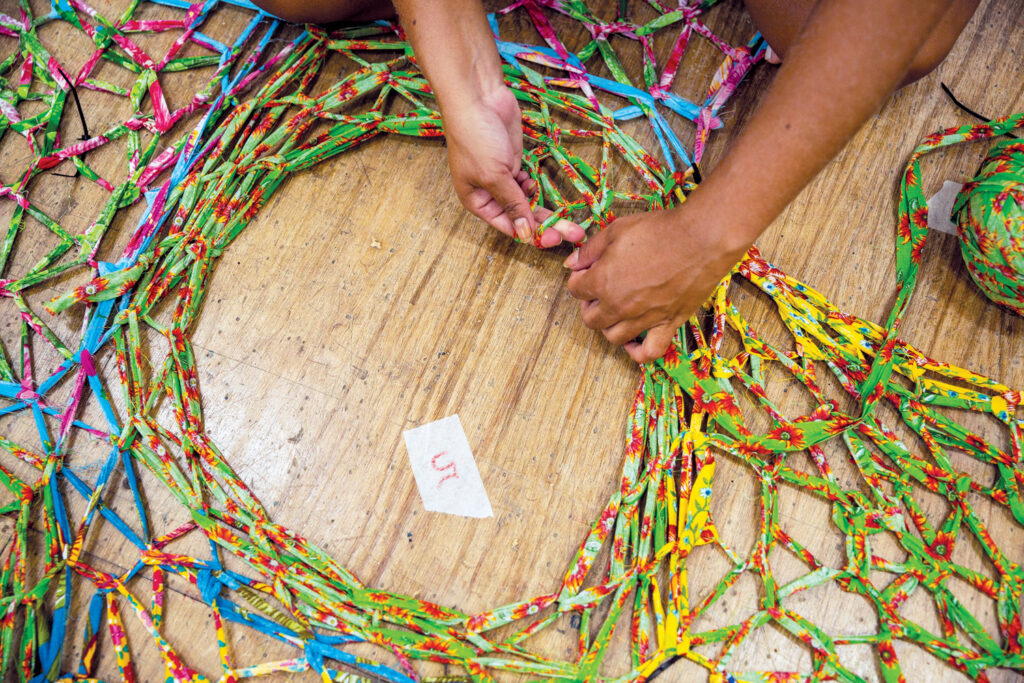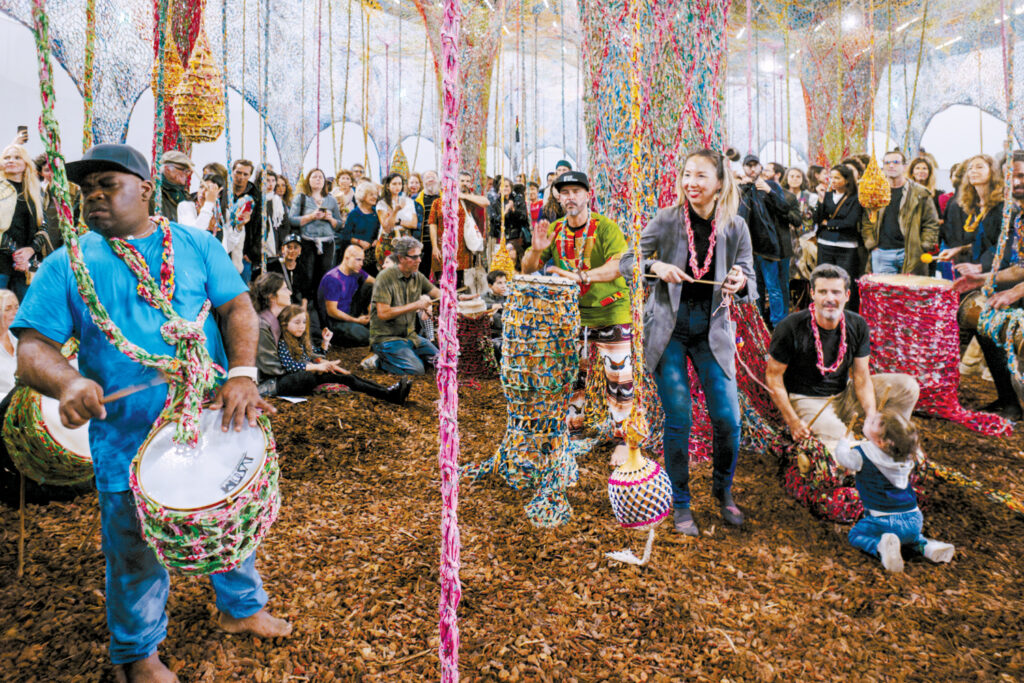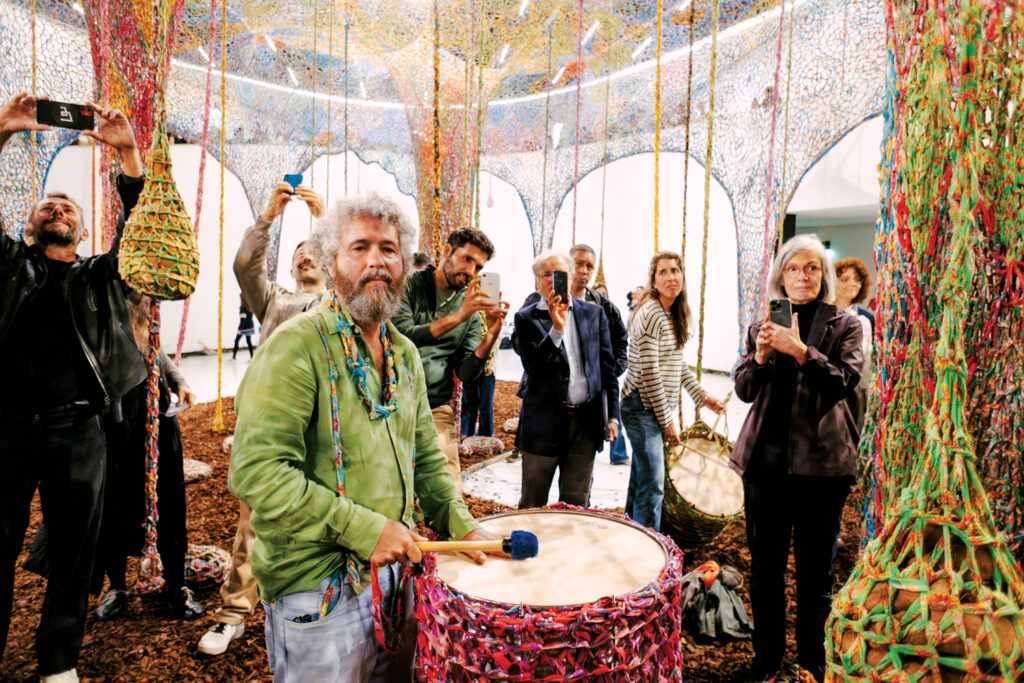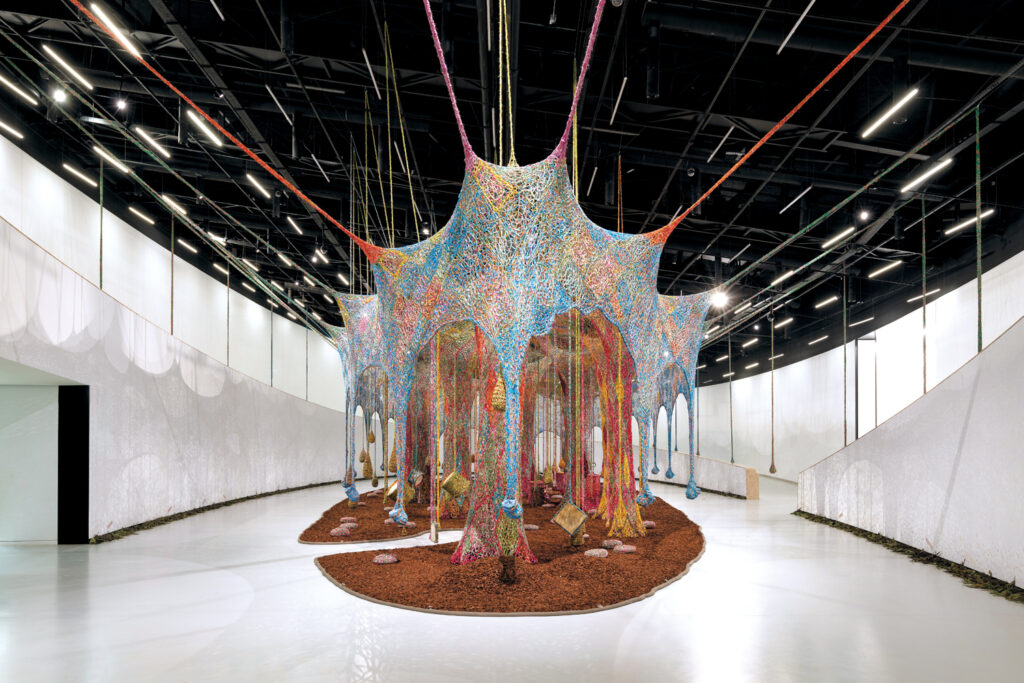Ernesto Neto, a contemporary artist from Rio de Janeiro, Brazil, recently exhibited his largest sculpture to date at the Museum of Art, Architecture and Technology (MAAT) in Lisbon, Portugal—Nosso Barco Tambor Terra (Our Boat Drum Earth).

Nosso Barco Tambor Terra is an immersive installation made from canvas, sails, rope and cotton that represents transatlantic voyages and the crossing of cultures. The sculpture features pieces of fabric cut into strips and crocheted, suspended in the air. It includes various items wrapped in the fabric, such as corn kernels, beans and musical instruments. It is mostly made of chintz, a relatively cheap cotton fabric that is often printed with brightly colored flowers and plants.

The sculpture was curated by Jacopo Crivelli Visconti and took Neto and his assistants several months to finish, using a technique developed by Neto in his studio. Nosso Barco Tambor Terra encourages visitors to experience the artwork up close by feeling its different textures, meditating cross-legged on the soft fabric that represents the ground or even smelling different parts of it.

The MAAT exhibition hosted multiple cultural events, including musicians who performed with the instruments in the sculpture, with an emphasis on music from African and Asian diasporas; a book club; sewing and cooking workshops; and percussion lessons. Neto, who has recently learned to play percussion, also performed with the instruments in the sculpture at several events and invited visitors to do the same.

Neto is a prominent Brazilian artist known for his immersive installations that allow viewers to use all five senses to experience the artwork. His other recent solo exhibitions include Blow in Santiago, Chile, in 2020 and GaiaMotherTree in Zurich, Switzerland, in 2018.

“[Nosso Barco Tambor Terra]studies the continuity between bodies, between mind, hand and earth; it sees planet Earth as a body, not as landscape; it sees itself as part of the body of Earth as well as part of the whole universe,” reads the artist statement. “[It] praises the vibrant force of the drum, the caxixi, the flute, the guitar, the maraca, of song and singing, learning from early on that joy is healing.”








Leave A Comment